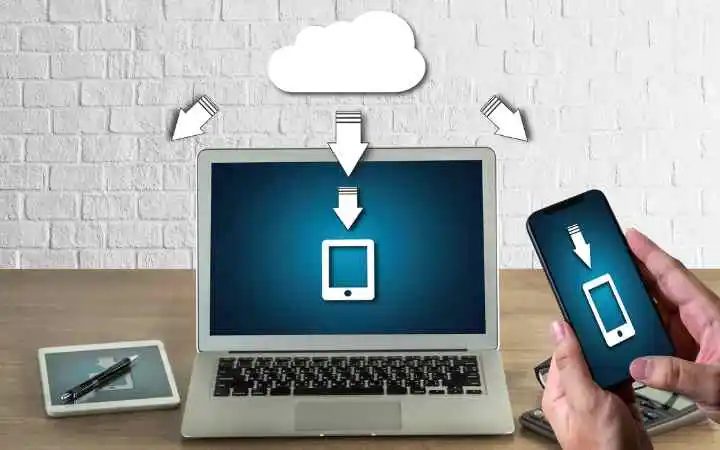What is a Backup, Types of Backup, and What’s the Need of it?

In today’s digital world, our personal and business data is increasingly valuable and essential to our daily lives. However, we are exposed to various risks that could put all this information at risk, from system failures and cyber attacks to natural disasters and physical accidents. This is where the protagonist of our article comes into play: the backup.
In this article, we will explore in detail what a backup is and what its function is, the different types of backups available, its benefits for both individual users and companies, and we will learn how to perform adequate backups to ensure the security and availability of our data in all the time. Discover how to protect your most precious files with the powerful backup tool!
What is a backup, and what is its function?
First, what is a backup? In simple terms, a backup is a backup copy of your data. This means a replica is created of all the essential information you have stored on your devices, such as your computer or phone.
The backup acts as a safety net for your data. Experience a system crash, virus attack, theft, or any other disaster that affects your devices. Your backup will be there to protect you. In addition to protecting your data, backup also allows you to recover previous versions of your files. Make changes to a document and realize you need the last version. You can search your backup and restore that previous version without problems.
Types of backups
Once we know what a backup is, we can identify different types. Pay attention!
Complete backup: This type of backup involves copying all your data and files on your device. It is done once and then updated only when you make significant changes to your data. A full backup is valid when you want a complete backup and ensure all your data is backed up.
Incremental backup: Unlike the full backup, the incremental backup only saves the changes made since the last backup. Instead of copying all files again, only recently modified or added files are backed up. This makes incremental backup faster and takes up less storage space. However, it is essential to note that in case of a restore, the latest incremental and most recent full backup will be needed to recover all the data.
Differential backup: Unlike incremental backup, differential backup saves only the changes made since the last backup. However, unlike incremental backup, differential backup saves all files modified or added since the previous full backup. This means that the size of the differential backup will grow as more changes are made, which may require more storage space. As with incremental backup, the latest differential and the most recent full backup will be needed for a full restore.
Continuous backup: Continuous backup is a real-time backup that automatically saves changes made to your files as you make them. It uses real-time backup technology to ensure your data is always backed up and updated. It is beneficial when you work on ongoing projects and want a constant backup without performing regular manual backups.
Local and cloud backup: This is not a category of jam but an additional option you should consider. You can make backups or copies on local devices, such as external hard drives, network servers, and cloud storage services. Local backups give you direct control over your data and do not depend on an Internet connection. On the other hand, cloud storage services offer the advantage of accessing your backups from any place and device with an Internet connection, providing greater flexibility and protection against physical disasters.
Now that you know what a backup is… Why do you need it?
Now that you know what a backup is and the different types of backups, you’re probably wondering: why do I need it?
The answer is straightforward because accidents and unforeseen events happen. Technical problems may arise, such as a computer’s hard drive failure or a virus infecting your files.
There is also the possibility of losing or damaging your devices, whether due to theft, fire, or natural disaster. If you don’t have a backup, you could lose all that valuable information forever.
Backups are like insurance for your data. Imagine you have a business, and all your records, clients, and invoices are stored on your computer. One day, the hard drive fails, and you lose everything. Without a backup, you would have to start from scratch, which could mean a considerable waste of time and money. You restore your data with a backup and move on as if nothing happened. It’s a way to ensure your data is safe and available when needed.
Backup benefits
As we have seen, backups have numerous benefits in terms of privacy, data storage, and cybersecurity, so if we have not convinced you yet, here are some reasons why you should make backups on your devices :
Recovering Deleted or Modified Files: We have all experienced that feeling of panic when we accidentally delete an essential file. With a backup, you can quickly recover those deleted files. Additionally, make changes to a file and want to revert them. You can find the previous version in your backup and restore it without problems.
Protection against cyber attacks: Cyber attacks like ransomware and viruses are becoming more common and dangerous. They can encrypt your files and demand a ransom for their release. However, if you have an up-to-date backup, you can clean your device of viruses and restore your files from the backup without having to pay the ransom.
Recovery after natural or physical disasters: Natural disasters, such as fires, floods, or earthquakes, can completely destroy your devices and stored files. Likewise, physical accidents, such as theft or loss of devices, can also put your data at risk.Flexibility in data migration: Backups are handy when you want to change devices or upgrade your hardware. With a backup, you can quickly transfer your data to a new device without losing important information. This allows you to update your devices without worrying about data loss.





